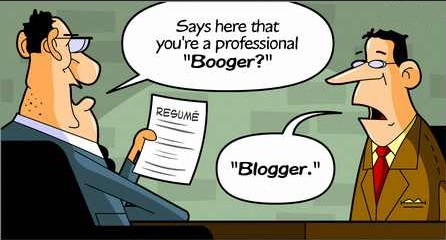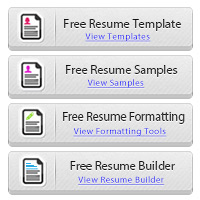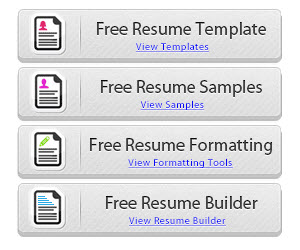Tips To Help You Create A Winning Resume and conduct a successful job search

What is the key to writing a good resume? What should you focus on? What should you downplay? In this article, we will explore the ins and outs of writing a great resume and performing a successful job search. Read on to learn more!
What Is The Purpose Of A Resume?
Many job seekers put far too much time into their resumes because they believe that the resume will help them get hired. While this may be true in some small part, the fact is a resume is intended to get you an interview; therefore, you should think of your resume as an appetizer, not a full meal.
Your experience, skills and the kind of impression you make at the interview counts for almost fifty percent of the information considered in hiring decisions. For this reason, your resume should make them curious. Your smart answers to their questions and your enthusiasm should make employers want to hire you.
What Are The Qualities Of A Strong Resume?
Your resume should be short and sweet. Two pages is acceptable, as a recruiter I did not have an issue scrolling the mouse button. Millions of websites will tell you to keep it to a single page but don’t try to cram everything into one page, making the entire resume to cluttered. It will probably take less than a minute for hiring personnel to decide whether or not they want to schedule an interview with you. Remember that the person who reads your resume is probably just a personnel rep who is only involved in hiring, not in the actual job being offered.
Keep your resume content simple, straightforward and easy to read and understand. Write it at an intelligent high school level. You want the person reading your resume to be able to glance at it and be 100% impressed in a few seconds.
Select standard, Times New Roman font in a size between 9 and 12 points. use italics or underlining sparingly; you may wish to bold your name and the names of the companies for which you have worked.
Alternately, you might use font size that is larger for your name and company names. You might also bold numbers, percentages and statistics that highlight your accomplishments (e.g. Increased sales by 25%).
Use a plain, Word Doc format that will be easy for anyone to view on just about any computer. Don’t use a template or table format. Your present occupation (or most recent occupation) should appear first, followed by your prior experience in descending order.
Include the name of each company, its purpose, your hire date and ending date (if applicable), your position and accomplishments. These can be stated in simple, short declarations, each beginning with a verb. Be sure to use terms that make your job title (i.e. manager, controller, customer service, accountant) clear.
Leave out superlatives and adjectives; If you believe you spearheaded a initiative, or provided the most excellent services, that’s great, but it won’t contribute to your getting an interview. Recruiters read resume after resume, these words only make their job more frustrating. If you get an interview, talk about how you performed your duties and present your references and letters of recommendation to get this point across.
Don’t worry about including a photo, personal information, or a objectives. These are completely unnecessary to your resume. If your resume is easy to read and compelling, you’ll get an interview. Hiring personnel will look at you and ask you about these things at your interview.
How Much Do Factors Such As Age Detract From A Person’s Ability To Land A Job?
Many job seekers worry that some personal attribute such as age will prevent them from getting hired. While this may sometimes be the case, by and large employers are just looking for people who are capable of doing the job well without being a big risk to hire.
Some risks include having been out of work for a long time or having had a higher ranking job that paid more than the job being offered. Very often, mature workers present these sorts of risks. This can result in older job seekers not being considered for some opportunities.
The reason for this is that the employer wants to be sure the new hire is going to stick around. A younger, less experienced worker for whom the job is an all new opportunity or an improvement is more likely to be happy with lower pay. A mature, experienced worker for whom the job represents a decrease in pay and status is more likely to continue looking for a better job and to leave when that job comes along.
I think all of the above are big misconceptions, an older worker mindset in reality is no different then a younger one. All of us are trying to find employment that provides an income. If you are older it’s a good idea to have a few formulated answers that can address these above mentioned issues.
If you are having trouble finding employment in your field you can counter this problem by considering a career change. A mature, experienced worker who wants to change careers and is willing to start at the bottom in a career field that is in demand will have a better chance of being hired.
In this situation, the worker will bring a lot of assets to the employer, and the employer will be able to offer the worker opportunities for advancement and increases in salary. This is a win-win situation that can help older workers get hired more quickly
Is A Great Resume The Only Way To Get An Interview?
In addition to sending out an excellent resume, you also network with your friends, relatives, co-workers and online connections. Connect with everybody on LinkedIn and inquire about job openings, ask for recommendations and don’t forget about employment agencies. More than half of the people who get hired report having gotten their interview through a networking connection. More then 70% of new job creation came though temporary agencies.
Remember To Take Advantage Of Social Media
Not all social media websites are actually helpful in getting an interview or a job, but any one of them can take you down in a heartbeat. Keep your public pages professional and friendly, and don’t do, say or post anything you would not want a potential employer to see. Stay away from religous, political and controversial posts. Even if something is close to your hart it’s a good idea to talk with friends or family instead of posting it for the world to see.
Professional social media sites, such as LinkedIn can be truly helpful. Be sure to keep your information updated and gather recommendations from people who can vouch for you, such as clients, former employers and colleagues.
Keep Circulating your Resume!
It’s important to keep active and social. Be friendly and talk with people each and every day. Let them know you are a job seeker. Research and connect with individuals and companies in your field and spread the word about your job search. You never know what might turn up!
Don’t get burned out, sometimes it may seem so pointless to send yet another resume to some unknown job listing. A good practice is to only post to 3 job openings per day and to tailor your resume to each. This will take you about two hours per day at the most.
I would be grateful if you share this article, every share helps the website grow and reach more people.
Subscribe to my newsletter below for a chance to win a free resume review.
[subscribe2]

